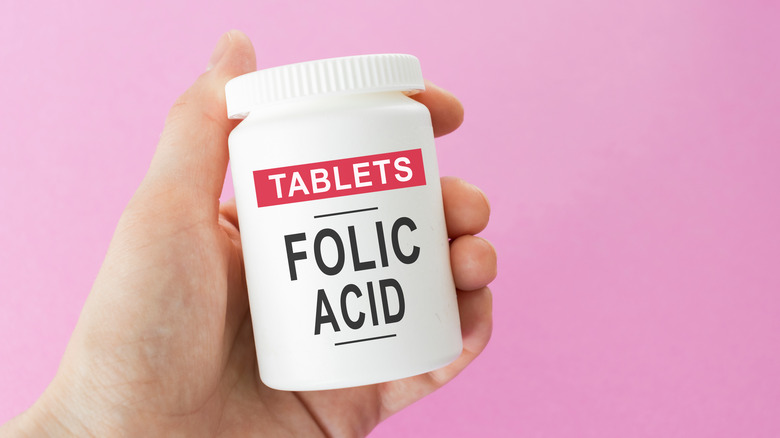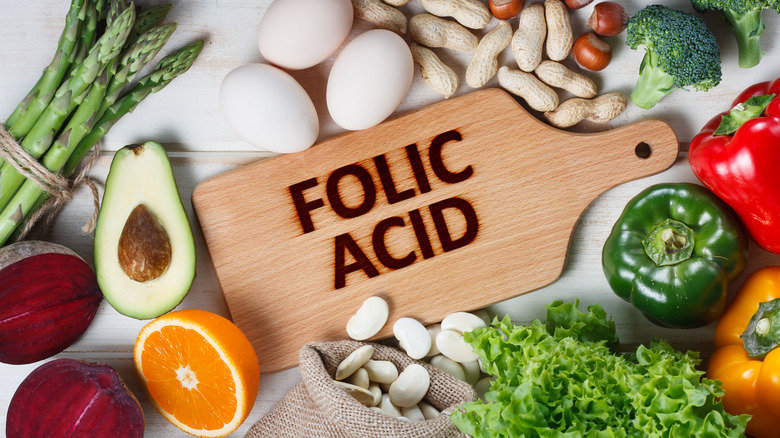What Happens To Your Body When You Take Folic Acid Supplements
Pregnant people and mothers-to-be have long heeded their doctors' advice to supplement with folic acid to help protect against neural tube defects (such as spina bifida) in their babies. But the importance of folic acid goes far beyond pregnancy health.
Folic acid is the synthetic form of the B-vitamin folate, which occurs naturally in a variety of plant and animal foods including leafy green vegetables, broccoli, asparagus, certain fruits like bananas and oranges, yeast, and beef liver (via WebMD). Folic acid has been added to foods like cereal, flour, and bread in the US since 1998 in order to help ensure that pregnant women get enough of this essential vitamin (via CDC). While different, the two are often used interchangeably.
Both folic acid and folate play a critical role in a whole host of bodily processes, including making and repairing DNA, red blood cell production, and cell division. A deficiency of the vitamin can lead not only to birth defects, but to an increased risk of anemia, heart disease, certain cancers, and even hair graying (via Healthline).
Folate is found in a variety of plant and animal foods
All people need adequate folic acid (or folate) intake, but the CDC recommends that all women who could become pregnant get a minimum of 400 micrograms (mcg) of folic acid per day. Since it may be difficult to keep track of exactly how much folate is being consumed in food throughout the day, a prenatal vitamin containing folic acid is a good idea.
For most others though, folate deficiencies are pretty rare and it's possible for most of us to get enough through a varied, healthy diet. In fact, getting too much folic acid can lead to negative results just as easily as getting too little. Too much folic acid has been linked to a depressed immune system, and even an increased risk for certain cancers (via Livestrong). And board-certified dermatologist Dr. Joshua Zeichner notes, "taking a supplement will not be helpful if you are not deficient" (via Byrdie).
Supplementing with folic acid can be helpful for those who have increased needs, especially pregnant women, but check with your doctor before giving it a try.


